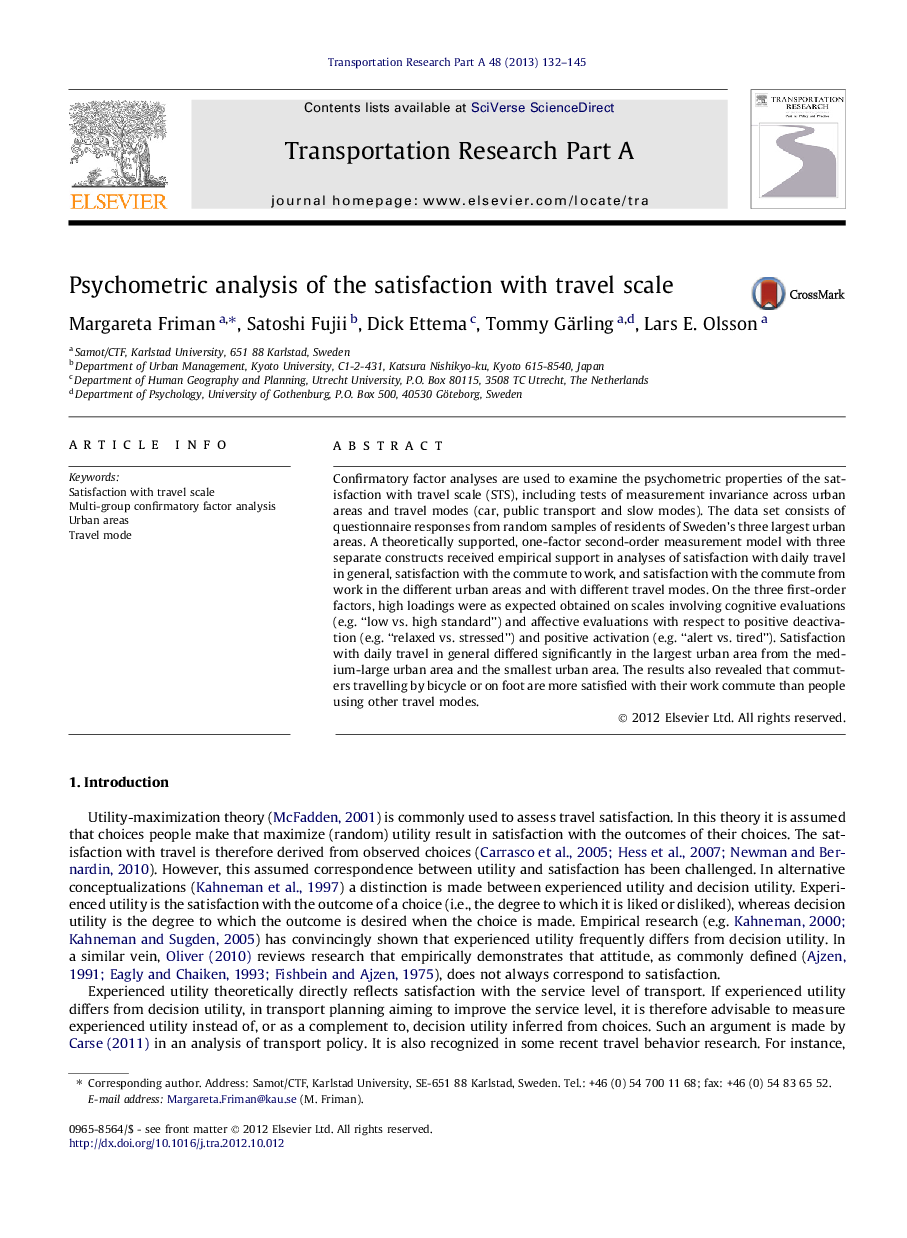| Article ID | Journal | Published Year | Pages | File Type |
|---|---|---|---|---|
| 311550 | Transportation Research Part A: Policy and Practice | 2013 | 14 Pages |
Confirmatory factor analyses are used to examine the psychometric properties of the satisfaction with travel scale (STS), including tests of measurement invariance across urban areas and travel modes (car, public transport and slow modes). The data set consists of questionnaire responses from random samples of residents of Sweden’s three largest urban areas. A theoretically supported, one-factor second-order measurement model with three separate constructs received empirical support in analyses of satisfaction with daily travel in general, satisfaction with the commute to work, and satisfaction with the commute from work in the different urban areas and with different travel modes. On the three first-order factors, high loadings were as expected obtained on scales involving cognitive evaluations (e.g. “low vs. high standard”) and affective evaluations with respect to positive deactivation (e.g. “relaxed vs. stressed”) and positive activation (e.g. “alert vs. tired”). Satisfaction with daily travel in general differed significantly in the largest urban area from the medium-large urban area and the smallest urban area. The results also revealed that commuters travelling by bicycle or on foot are more satisfied with their work commute than people using other travel modes.
► The psychometric properties of a measure of satisfaction with travel scale (STS) are examined. ► A one-factor second-order measurement model with three separate constructs was confirmed. ► The measurement model was invariant across urban areas and travel modes. ► Commuters travelling by slow-modes (walking and biking) are most satisfied. ► STS can be used to access transport policies.
